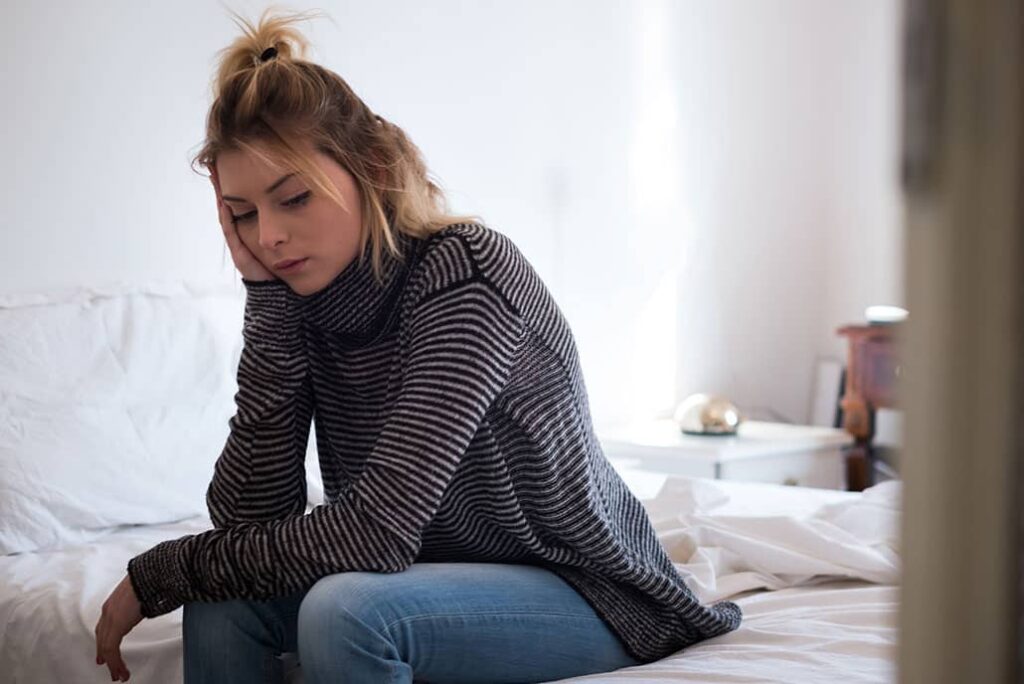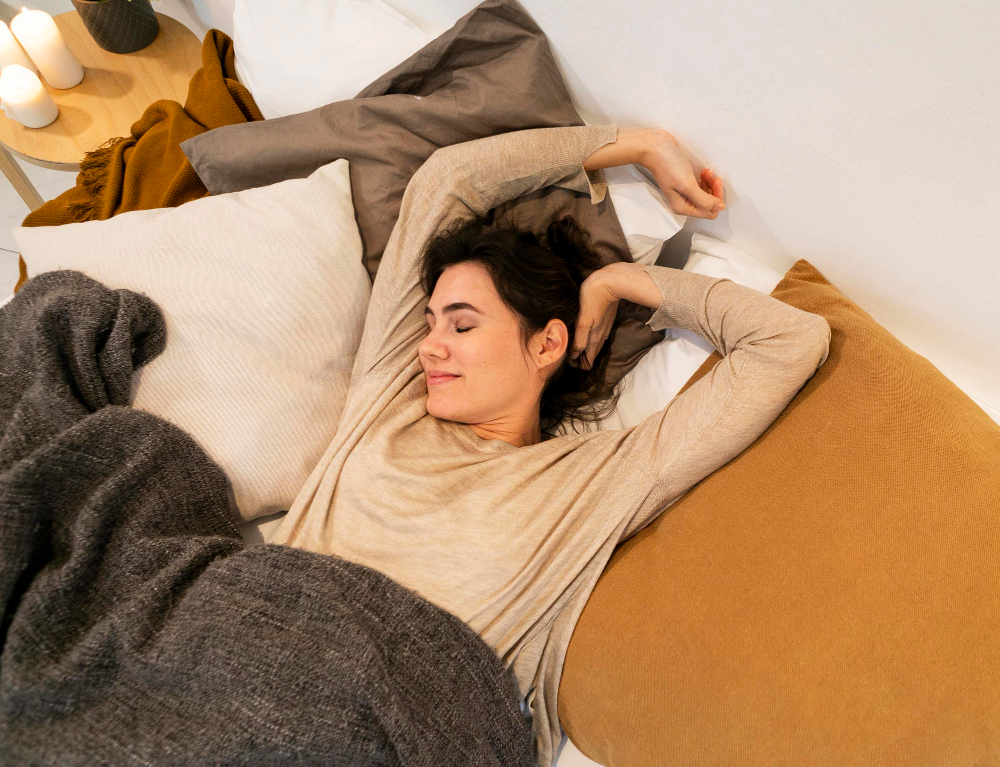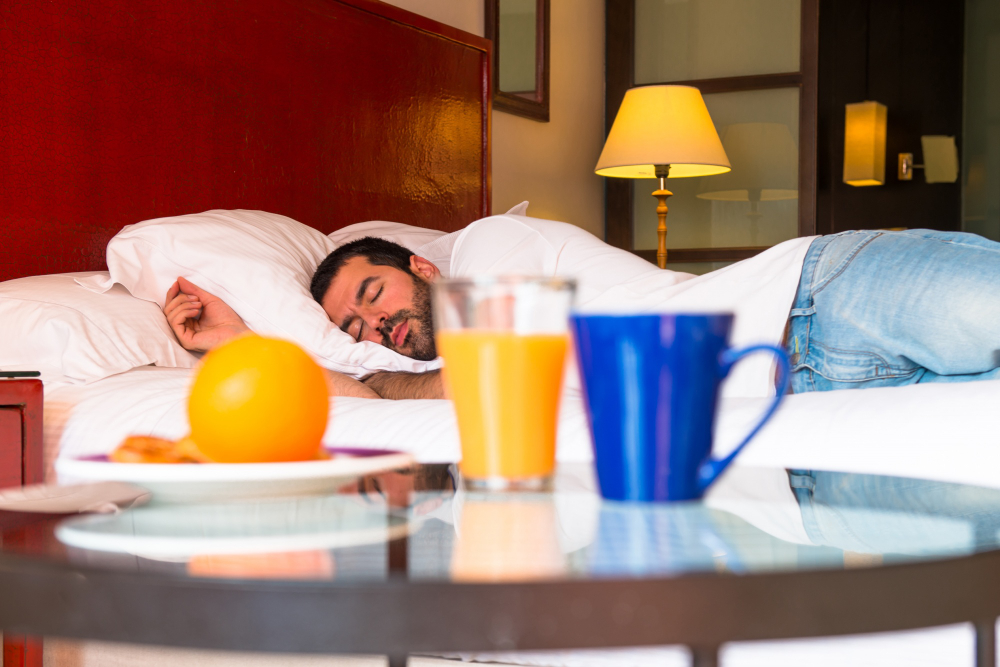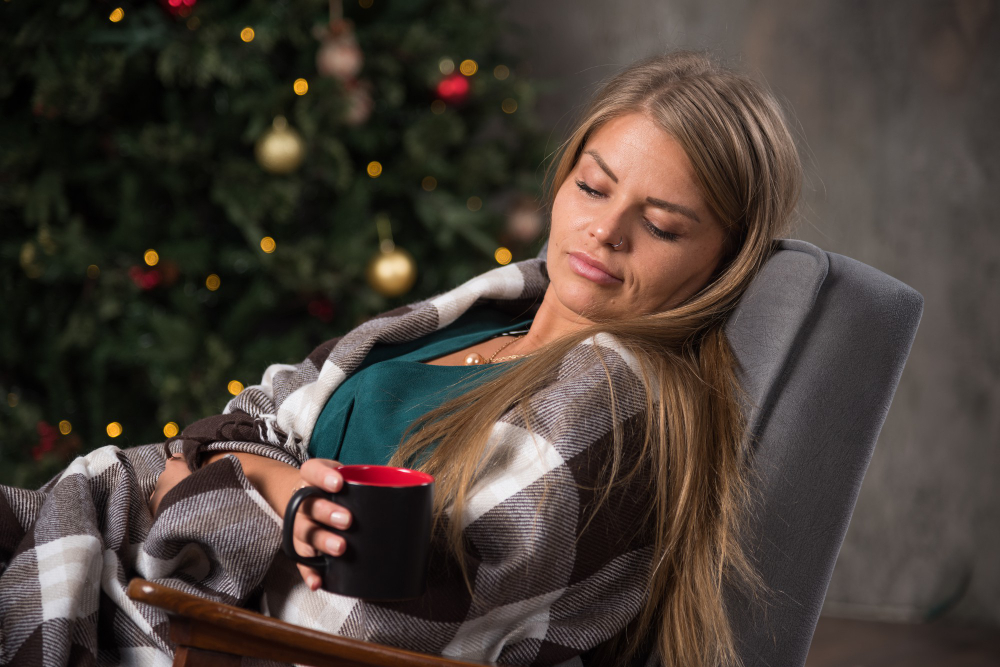
Are you tossing and turning at night and daydreaming of getting better sleep during the day? From diet plans to 6-minute lunch break workouts, we’re constantly looking for fixes that will make our lives better. The same goes for sleep. By exploring different types of sleep aids, you might find something that will help you get the extra zzz’s you need.
Alternative Sleep Solutions
Before you head to the pharmacy and go the medication route, there are many non-medicinal sleep solutions that can help you get a great night’s sleep. As with anything, it’s important to run these sleep remedies by your doctor first, especially if you’re trying something new.
- Yoga nidra is one type of yoga that relaxes your muscles, and brings your mind and body to rest. Consider doing a few simple stretches before bed so you can fall asleep easier.
- Exercise is not only beneficial to your overall health, but it plays an important role in getting your body ready for sleep. Have your workouts completed at least 2 hours before bedtime, so your body has enough time to rest.
- Soothing scents such as chamomile, jasmine and lavender can help your body relax and prepare for sleep. Treat yourself to a little aromatherapy by spraying your pillow with lavender or chamomile before bedtime.
- Caffeine is great at keeping you alert in the morning, but it stays in your system longer than you might think and can disturb your sleep. Try consuming caffeinated beverages in the morning and if you need to sip on something before bed, banana tea and warm milk are a couple of great options.
- A weighted blanket is another option if you have trouble sleeping, because it offers a sort of deep pressure stimulation that’s been found to calm down adults. According to the American Academy of Sleep Medicine, the blankets feel like you’re having the best hug of all time and they may help people with chronic pain, anxiety or depression sleep better at night.
Natural Sleep Aids and Remedies
For all of you flower children out there, don’t worry. There are plenty of other natural sleep aids to choose from as well – some involving actual flowers! Here’s a list of some sleep-promoting supplements that help you fall asleep faster, promote better sleep quality, or both:
- Melatonin is a natural hormone that alerts our bodies that it’s time to sleep. It’s particularly effective for those who need to sleep when it is light outside – such as shift workers and people experiencing jet lag.
- Valerian is a tall, flowering grassland plant with sleep-friendly compounds that seem to be most effective when taken regularly for two or more weeks. However, it may not be safe if you’re pregnant or breastfeeding.
- Lavender, a plant, produces purple flowers that when dried have many practical uses. The soothing smell of lavender which is thought to help those suffering from mild insomnia.
- Passion Flower is a popular herbal remedy for insomnia. It’s thought to be more effective when consumed as a tea than a supplement, but evidence is weak in general.
- Glycine is an amino acid shown to lower body temperature, readying the body for sleep. You can buy glycine in pill form or as a powder to be diluted in water. Another option to consider is to simply eat foods that are rich in the nutrient, such as meat, eggs, beans, spinach, kale and cabbage.
Pink or White Noise
Have you ever listened to tracks like “Waves Crashing at Night” or “Relaxing Rainforest Sounds” in bed to help you nod off? If so, you are using another type of sleep aid. Two types of sound have been proven to help some people fall asleep at night: pink noise and white noise.
Although similar, our ears typically hear pink noise as being even or flat, while white noise sounds more static. According to the Cleveland Clinic, pink noise enhances brain activity that’s associated with the deep phases of sleep. (In a recent study, pink noise increased deep sleep and dramatically improved memory in elderly adults.) White noise, in comparison, is ideal for tuning out sounds that are disrupting sleep, such as your partner’s snoring. There hasn’t been a study comparing pink noise to white noise, but researchers say both may help us catch more zzz’s.
Good Sleep Habits Should Come First
There are tons of nonmedicinal sleep aids to choose from. But before you decide on one, make sure to try these helpful tips for getting a good night’s sleep first:
- Meditate before bed if needed. Turning off your worries and thoughts is essential if you’re going to sleep well.
- Schedule a sleep appointment. Going to bed at the same time each night will get your body into the habit of regular sleep.
- Unwind into the evening. Set up a relaxing routine that you do each night before bed, to help signal to your body that sleep is coming.
- Get a good mattress. An old or lumpy mattress can cause you to lose sleep and feel achy.
- Create a sweet sleep suite. A cool, comfortable bedroom that is free of electronic devices will set you up for a good night of sleep.
Talk to Your Doctor
If you’re still not getting a good night’s rest after trying different sleep aids, you may have a sleep condition that would need additional treatment. Be sure to share any concerns you have with your doctor, so you can get back to sleeping well at night.
Having trouble falling asleep? Check out a few common sleep aids to help you avoid a poor night’s sleep. #BSCSleepTips @BetterSleepOrgSources:
- https://www.sciencedaily.com/releases/2016/06/160614114045.htm
- https://www.mayoclinic.org/healthy-lifestyle/adult-health/in-depth/sleep-aids/art-20047860
- https://www.healthline.com/nutrition/sleep-aids
- https://www.mayoclinic.org/diseases-conditions/insomnia/expert-answers/valerian/faq-20057875
- https://health.clevelandclinic.org/why-pink-noise-might-just-help-you-get-a-better-nights-sleep/
- https://www.webmd.com/women/features/sleep-gadgets-apps-tips#1
- https://www.webmd.com/sleep-disorders/news/20180402/seeking-better-sleep-under-a-weighted-blanket
This blog provides general information about sleep and sleep products. The words and other content provided in this blog, and in any linked materials, are not intended to replace a one-on-one relationship with a qualified heath care professional. This blog should not be construed as medical advice or used to diagnose, treat, prevent or cure any disease or condition. If the reader or any other person has a medical concern, he or she should consult with an appropriately-licensed physician or other health care professional. This blog is not a substitute for professional medical advice, diagnosis or treatment, and should not be relied upon to make decisions about your health or the health of others. Never disregard professional medical advice or delay in seeking it because of something you have read on this blog or elsewhere on bettersleep.org. If you think you may have a medical emergency, immediately call your doctor or dial 911.



